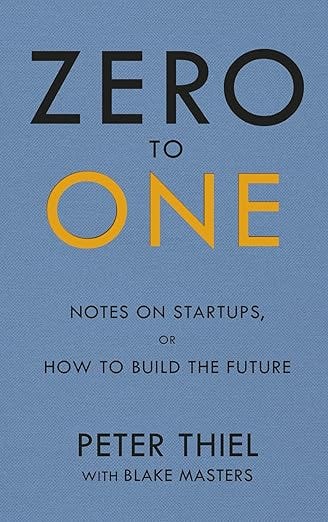The next Bill Gates will not build an operating system. The next Larry Page or Sergey Brin won’t make a search engine. If you are copying these guys, you aren’t learning from them. It’s easier to copy a model than to make something new: doing what we already know how to do takes the world from 1 to n, adding more of something familiar. Every new creation goes from 0 to 1. This book is about how to get there.
Here are five big ideas from Zero to One by Peter Thiel:
Focus on Building Unique Monopolies: Thiel emphasizes that truly successful businesses are those that create and maintain monopolies by offering a product or service so unique and valuable that no one else can compete. Competing in existing markets often leads to mediocrity, whereas creating a new market space can lead to lasting dominance.
Vertical Progress vs. Horizontal Progress: The book differentiates between horizontal progress (copying or scaling existing ideas) and vertical progress (innovating something completely new). Thiel advocates for pursuing vertical progress, or going from “zero to one,” as the most meaningful way to create transformative change.
The Power Law of Venture Capital: Returns in startups are not evenly distributed. A few companies will generate the majority of the returns. Thiel advises founders and investors to focus on opportunities with massive potential rather than diversifying their efforts too much.
Secrets Drive Innovation: Thiel posits that uncovering and acting on “secrets”—hidden truths about the world that others overlook—are key to building groundbreaking businesses. He urges entrepreneurs to challenge conventional thinking and explore areas others consider taboo or impossible.
Start Small, Think Big: Successful companies often begin by dominating a niche market before expanding. By starting small, they can perfect their product and establish a loyal customer base, which creates a strong foundation for scaling to larger markets.











